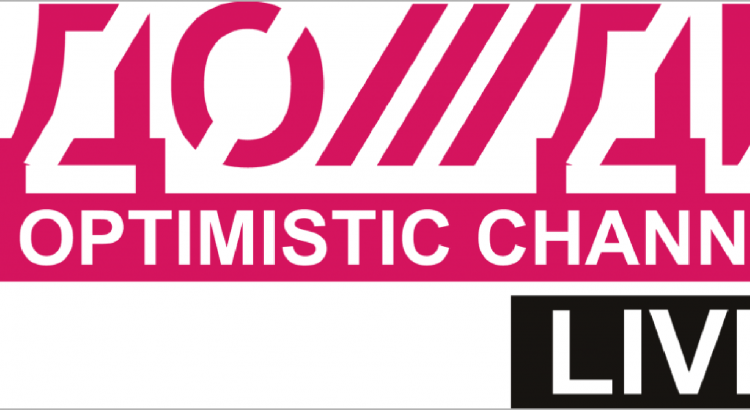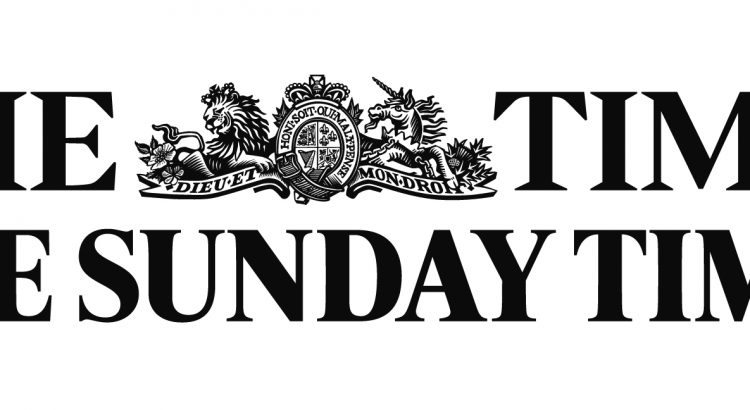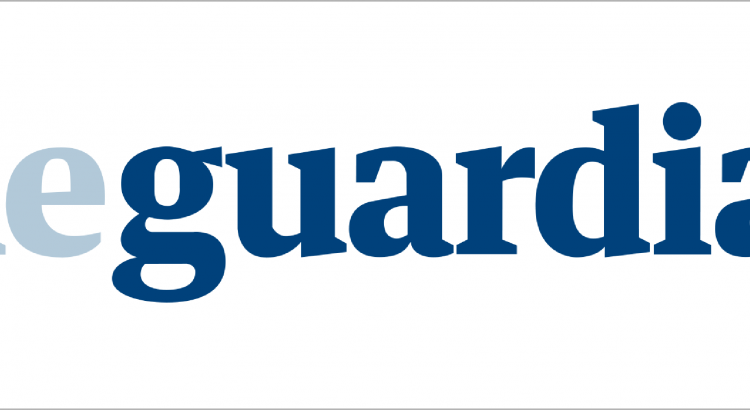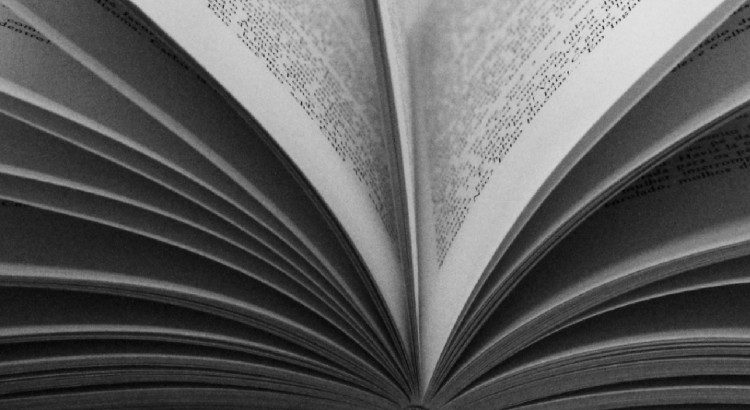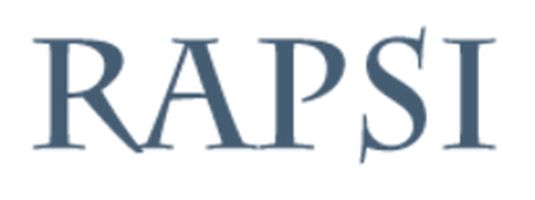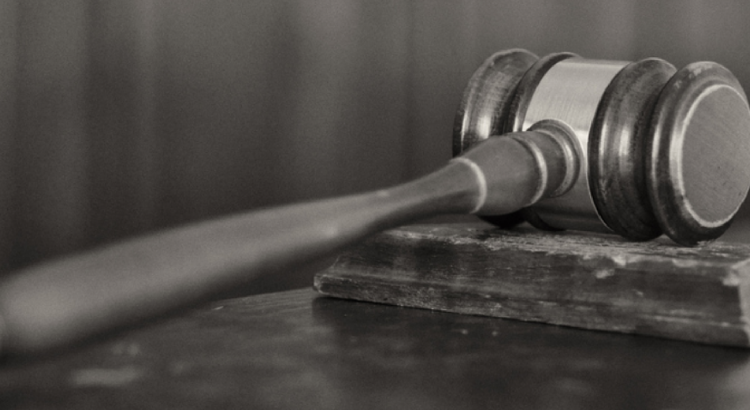“I advised him to leave Russia with the money”: Sergei Pugachev, former advisor to Putin, talks about Khodorkovsky’s arrest, the roots of the Russian business in the UK and the High Court of London
15 years ago, on 25 October 2003, Mikhail Khodorkovsky was arrested. Back then, in 2003, Sergei Pugachev was not yet an émigré in exile, as he is today, but Vladimir Putin’s trusted banker and a close acquaintance of his. This week, the London court has ruled that Pugachev’s London mansion be sold to repay creditors, whose interests are represented by the Russian Deposit Insurance Agency (DIA), i.e. that very same State to which Pugachev was once so close. Mikhail Fischman asks Pugachev about the trial, the current status of the Russian oligarchs in the West and that historical day of 25 October 2003.
Sergei, how are we to understand the court’s ruling, after all? Was there or wasn’t there a ruling? Was your London house confiscated, or wasn’t it? Did the claimants from Russia, i.e. the DIA, win the case, or didn’t they? Please do explain.
Good evening, Mikhail. Currently, at this particular moment in time, there is no final ruling, no official ruling exists. Something was announced at the hearing, but I was unfortunately unable to take part in it, because I was debarred participation by the judge. For about a couple of hours the judge and the court, who had the obligation to provide a video link, had been telling me of some technical issues. Some time later it was finally announced that the judge refused that I be heard by the court, even though I am the first defendant in that case.
And so? What happened eventually? Who won, in the end? Who is currently winning? Are you losing?
Well, it is complicated: I wish to reiterate that there is no decision. The important question here is not whether we are winning or losing – I don’t know what will eventually happen, I don’t know what the final decision will be – but the important fact is that the DIA, which is representing the Russian Federation, continues with the expropriation, which began fifteen years ago (it is a memorable date) with the expropriation of YUKOS’s assets. So, in short, the process goes on steadily, except that today it has taken on a different form, now it is based on a manipulation of the Western judicial system, especially of the British one. Because the High Court of London, is favoured – well, I wouldn’t quite say by the Russians – but certainly by the Russian Federation.
I will ask you the question later, specifically, but you too, in fact – in your statement of defence, which I have here before me – you bluntly state that pursuits against you are politically motivated in Russia, that your assets are being expropriated on political grounds – i.e. property is being taken, which, in one way or another, belongs to you. Logically, today one would expect the West and Britain, the British justice in this specific case, to take your side. Yet it seems that this is not what is happening.
I do not quite agree. The point is: what is happening in the media, the mutual accusations at the highest state level, it does not affect the judicial system at all so far, nor does it affect the middle levels or the business world – nothing. You have to understand that especially in Britain, in the realm of common law – as opposed to France, for example, with its civil law – you have the most expensive lawyers of all, it is a gigantic business, worth billions. And it not a system that one can break on the grounds of foreign policy matters, because of relations between Russia and the UK. I think it will take years, even decades.
So, if I understand correctly – and you are welcome to comment – these two processes are running parallel to each other, as it were. On the one hand we have political declarations made by the British government about increased pressure on the business connected with Vladimir Putin’s entourage, about looking for corrupt businessmen among those who have settled in Britain and making them… And in fact this process is already underway, as some decisions have demonstrated. On the other hand, claims against entrepreneurs such as yourself are being granted, claims in which the Russian Federation is a claimant, in one manner or another.
Yes, the Russian Federation is the claimant in this specific case. And one has to understand that those accusations being thrown at each other – even if you let aside the murder of British citizens in the territory of Britain – they will not have a prompt effect. We see, for example, that after the adoption of the law on checking the origin of funds above 50 thousand pounds, only three information requests have been sent, as far as I know.
Of course Great-Britain, because of Brexit and many other reasons, is interested in keeping the funds, and evidently is not interested in expelling the remaining investors, or simply those people who keep their assets in the UK, in the British banks, etc. Of course the real estate prices have gone down substantially and so on, so all this rhetoric has already brought about a number of consequences. But this has no influence whatsoever, of course, on legal proceedings and on the lawyers’ attitude.
The firm Hogan Lovells have a longstanding history with Russia, which they actually confirmed during a cross-examination. This is their only business, they will not manage to find some new clients by magic, and so they carry on. Here’s an interesting question asked by Justice Wilson to one of the partners of Hogan Lovells, Mike Roberts: how much he had earned for that hearing. Roberts said: 10 million pounds, to say the least. This is quite impressive; and the most interesting is that we were unable to find the corresponding line in the DIA’s budget, whereas this is supposed to be public information and the DIA is supposed to be financing this litigation.
This is quite intriguing. But in that same defence statement you write that attempts were made to kill you. There was attempted murder, so you are, essentially, on the same list with other enemies of the Russian political regime. But this does not affect the position of the British justice, this is not taken into account at all in those proceedings, or so it seems.
It absolutely isn’t taken into account. When an attempt to kill me was made in the UK in 2015, it was investigated by the anti-terrorist section of Scotland Yard, quite independently from myself, criminal proceedings were started, which currently continue in France. So the investigation continues in France. The investigation process in Britain was stopped after I left Britain to return to France. The case was dropped, despite the fact that the crime had been committed in the territory of Great Britain. So, no, of course, it is not taken into account.
You also write, this is a direct quotation, you write that “the Russian regime is deeply rooted in the Western countries, including Great-Britain; about 300 thousand of the richest Russians either live or have their assets in Britain, which testifies to Putin’s considerable influence over that country” – end of quote. Is something changing in terms of this situation and Putin’s influence, as described by you? After all, much has happened, especially after the Skripal events surfaced in March and became widely publicised. Do you see the situation evolving, or not at all?
I think not. I do not see the situation evolving. I think that actually it never changed, this is how it always was: you will recall the Litvinenko case and his widow needing some ten years to convince the courts to have his case heard publicly…
Yes, I remember it well. I even remember reading articles in the British press, which harshly criticised the British Home office, which was then headed by the current Prime minister. It was said that the investigation was impeded, and so forth… This was a notorious issue then.
Yes, but still, you have to understand that this throwing of unpleasant accusations at each other will of course continue, there is no doubt about it, because this is what politics are like, you have upcoming elections and all that. Yet the mundane level, if you can call it this, is not at all affected. Of course it isn’t. We know well that a huge number of Russian officials, of their children, whose fortunes amount to billions – they live in Britain, they own a lot of property, real estate property in Britain… so clearly no sensational revirement has taken place so far.
And the fact that Berezovky, earlier, and Khodorkovsky now, and maybe some others are still in Britain, this is pretty much exotic. This is quite small, compared to some 300 thousand Russians, among the wealthiest, who are of course drawing their income from Russia and spending it in Britain.
Yes, this I understand quite well. It just seems to me that you can see a difference today in political terms, between the Litvinenko case and its consequences – when the diplomatic relations were frozen, when some diplomatic consequences ensued, but the case was not investigated, as you have just reminded us yourself – and the utterly different consequences of the Salisbury poisoning case, when Theresa May is leading the attack against Russia, when she is demanding sanctions and urging her European partners to follow suit, and so on and so forth. I think the difference is noticeable. And I imagine it should also manifest itself in an increased pressure on the corrupt Russian business in Britain. Or shouldn’t it?
It should indeed, yet it still hasn’t, in any manner. And I doubt we shall see anything of the kind in the near future. If we do, it would be a sensation. We know that Putin’s friends, people close to him, who have amassed enormous fortunes in Russia, live peacefully and happily in Britain and are even on good terms with the ruling elite. Here’s a recent article in The Times, writing that members of the British elite are lobbying for an improvement of relations with Russia. What this means is that Russia has considerably strengthened its foothold in Britain over the past twenty years, since Putin’s arrival to power. And this certainly is not going to be sabotaged by some declarations made by Theresa May, it is practically impossible.
You also mention – one more quote – that Putin personally told you about his intention to acquire the Chelsea football club, in order to increase his influence in Britain and improve Russia’s image, not only with the ruling class, but also with the ordinary British. I imagine you mean the early 2000s here, 2002-2003, I suppose. Do you?
Yes, just before the acquisition…
Yes, just before Roman Abramovich bought the Chelsea club. There are currently rumours that he might have to sell it. Sky News has just now contradicted it, but the rumours are flourishing, and apparently some potential buyers have come forth. So was it all a political scheme, right from the very beginning? Is that what you’re saying?
It certainly was. I think it was a sort of a special operation to infiltrate the British society, as it were. Except that is was not aimed at the ruling elite, but at the common British people. As Putin said, it was perceived as a means to improve Russia’s image with the ordinary British. Putin thinks the operation was a success and you have to grant him that: it actually went rather well, it was an infiltration based on common interests, as it were, because the English do love football. So it did work rather well.
Yes, but now we are facing the opposite situation when Abramovich is seemingly contemplating to part with Chelsea. What is you impression of it?
I think that it is, in the first place, linked with his personal situation, because he is still the owner, somehow. We know that he has had a number of problems, that he failed to have his visa extended, that he obtained Israeli citizenship, and so forth. This has most probably complicated communications with Britain, with the club. Then there is the financial situation, which also matters, inevitably. And Russia’s self-isolation policy also leads to the fact that Abramovich has started taking personal decisions. I don’t know how accurate the rumours are, whether he does indeed intend to sell, but it sounds logical to me. Today not even the ownership of Chelsea will help Russia to improve those relations… This is a public relations thing, and it will not help.
Coming back to my previous question about the big Russian business… Of course, there are officials, or just people, who have money in the West and who want to keep it there somehow. But the really big Russian businesses, the major companies – they are having a much harder time today in the West, business has become much more difficult, hasn’t it? Or is the situation still bearable and it is too early to think of going back home?
The situation has indeed become much more complicated for the big Russian business, the business that belongs to Putin’s closest circle, the major companies, whether public or private. Yes, of course the situation has worsened. It has also grown worse on the middle level. I talk to people quite a lot and I see that they cannot even open a bank account now, in some cases the accounts they already have are being closed, in spite of a 20-years’ flawless banking history. So, yes, on that level the situation is much worse now. I think this has to do with Russia’s self-isolation course, returning to Russia or the other way round, but this is a process that is actively underway.
You mentioned a kind of anniversary that we have: 15 years will have passed this week since Khodorkovsky was arrested on 25 October 2003. This was a point in time which I personally, and many others, too, hold to be a turning point. Not only for the relationship between the State and big business in Russia, but also a turning point for all of Russian politics and Russian life thereafter. Back then you were on the other side of the barricades, you were still an ally of Putin’s back then, if I understand correctly. Looking back today, do you think… What do you think of those days, of those times? And to what extent would you say that the difficulties and the self-isolation you have just mentioned are a direct consequence of those decisions taken fifteen years ago, a consequence of that arrest?
I absolutely agree, except for the fact that I was not on the other side of the barricades. I was on neither side of any barricade. I was involved in politics, it is true, I was Putin’s adviser, but this does not mean that I supported his position on YUKOS. Moreover, he did not inform me about it, this was a case managed by the special services, so everything was kept utterly secret. Moreover, when I met Khodorkovsky and we had a chance to discuss it, my advice to him was to leave the country with the money, so that he could later influence the situation somehow, perhaps support his former collaborators, who will have been facing difficulties (and this is what actually happened).
In that respect nothing changed. I still maintain that this was a turning point and a critical stage in Russia’s development. This is a fact. I remember how it all unfolded, I saw it from the inside, as it were, being still in close contact with Putin. Putin could not have acted differently, I mean that this was his perception of it. And it was not a political issue, it was not a matter of supporting Khodorkovsky, or the communist party or whatever. It was, purely and simply, a straightforward decision on expropriation of assets. And the same thing happened over and over again later.
The cases may not have been so visible and so important, but what definitely has changed… Why do we remember this case so vividly, I mean the YUKOS case? Because back then the courts were not yet so subdued, the judicial power had not become part of the President’s administration, so to speak. YUKOS’s lawyers, Khodorkovsky’s lawyers were not able to plead, to convey their position; the judges were trying to subtly twist the law somehow, but this was still happening within the existing legal framework. Now we see that this has been lost, that the situation has changed. If the YUKOS case happened today, I think that we would only have seen a couple of short articles in the press, hardly anything more…
No one would have paid any attention, I think. But even then, honestly, if you look at the accusations, starting from Lebedev’s arrest in July 2003 it all looked fairly ridiculous from a legal viewpoint. And all the independent observers realised it, of course.
Yes, but nonetheless it attracted the public’s attention. Today’s equivalent, to a certain extent, would be Serebrennikov’s case. It is very similar. But trust me, if the same had happened today with some other private businessman, a big company, no matter whether an oil company or some other, I think that you would have just briefly mentioned it in the news. Look at the Mamedovs’ case, it is a good example.
Yes, absolutely! It is much less written about. As far as you are concerned, there subsists the notion that you used to be on the other side, because you had good relations with Putin, because you were part of… Basically, your business began to flourish after Putin became president, your situation greatly improved. It was being said of you back then, if I am not mistaken, that you are on good terms with the siloviki of Putin’s circle, and this is why, back then… You were even largely demonised in fact, if I remember correctly. The press would say that the orthodox oligarch banker Pugachev is treading one the grounds of the old Yeltsin guard, and so forth.
Well, this is certainly mistaken. There were a number of corporate wars going on, it was something normal back then, it was a way of doing things. Nobody wanted to have someone else become closer to Putin than others, I mean the financial and industrial organisations. This is normal. But it is a different matter. The point is that I had contributed to Putin’s coming to power, because I belonged to Yeltsin’s team. So, saying that I was on the other side is utterly incorrect. Besides I still have good relations with Tatiana Diachenko and Valentin Yumashev. You have to understand that my active political career began in 1996, at the time of Yeltsin’s election. This is why saying I was on the other side is entirely inappropriate.
The other thing you mentioned: that my business began to expand after Putin came to power. This is not true, Putin had nothing to do with it at all. All I had, I had acquired by myself. I had never taken part in the privatisation process, I had bought everything for money, before Putin came to power. This applies to the largest shipbuilding yards in Petersburg, this applies to the licence I obtained in 1999 for the development of the world’s largest coking coal deposit, and to all the rest. On the contrary, Putin tried to take what belonged to me – this is precisely what happened – and give it to the people closest to him, to the Petersburg people, to his friends, his former KGB colleagues and so on.
Coming back to Khodorkovsky’s case: if I understood you correctly, you believe that in reality it was not a crossroads, that Putin had no choice, and that his decision to have Khodorkovsky arrested had been predetermined and things could not have gone any other way?
Obviously so. I remember how it came about, the details of it. What I meant to say is that psychologically Putin was not ready for anything else. It was the only way he was prepared to take. We had spoken at length about it with him and I was very much against it, categorically against it. Not because I had ever been a close friend of Khodorkovsky’s, even though we had been in close contact since the late 80s and early 90s (we were in fact neighbours, our houses and our summer houses were some fifty meters apart from each other).
This was because I understood that it was a crucial moment. That he was going to completely break the investment climate so to speak – back then this was something you could talk about. This had to be avoided a priori, because having once felt the taste of blood he would not have stopped. I realised very well that Putin would catch the trick, and then… he is in such a way that… I remember one case, quite extraordinary, when Putin wanted to replace an official: at some point he said, well, let him sit there for the time being, and if need be, we will have a criminal case brought against him and we will have him imprisoned. This is, in fact, the predominant approach today, it still is, and it could not have been otherwise.
Thank you very much for this fascinating conversation. Thank you.
